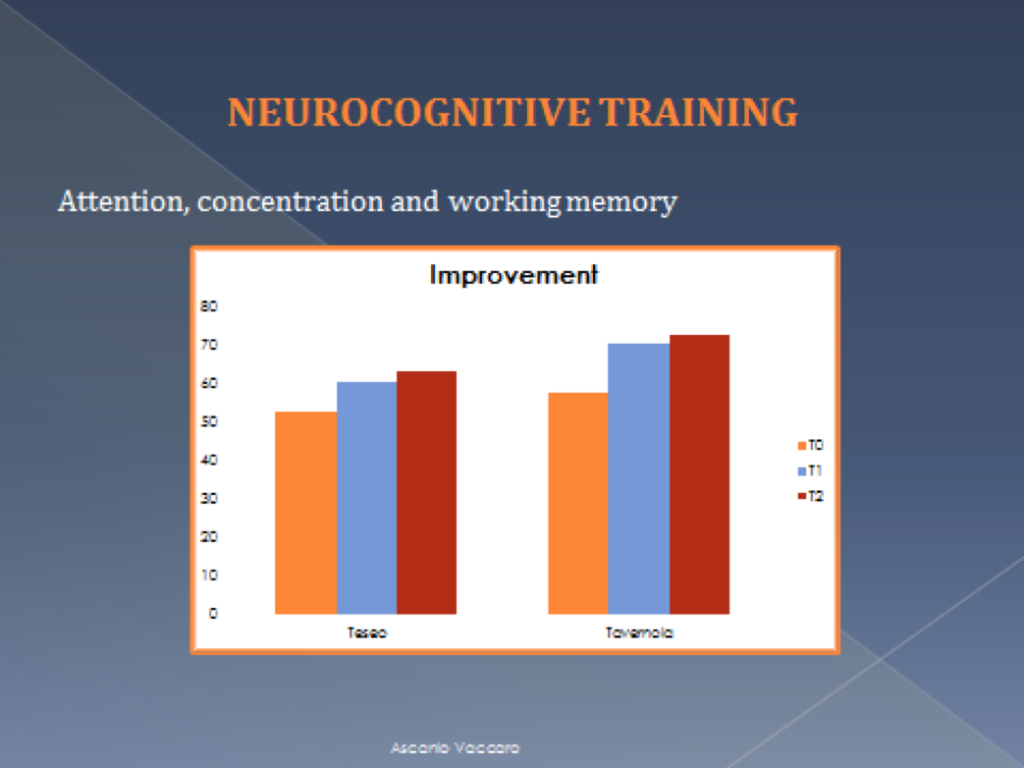Neuropsychological Rehabilitation Training in Residential Mental Health Services
Vaccaro A.(Psychiatrist, Psychotherapist), Zoppellaro C. (Psychologist, Psychotherapist)
Introduction
Neuropsychological rehabilitation in our mental health service is a central pillar of psychosocial rehabilitation. These interventions are integrated into a more complex program of psychosocial rehabilitation based on cognitive behavioral method.
Objectives
We devote particular attention to the empowerment of the cognitive functions:
attention, memory, language, logical and abstract reasoning.
The aim of this research is to evaluate efficacy of neuropsychological rehabilitation training in cognitive rehabilitation of psychotic patients.
Methods
The subjects that took part to the training were psychotics patient, residents in a mental health Community. Patients were both females and males, aged between 18 and 55 years. They were divided in two pilot groups and a control group. The instrument used was a battery of neuropsychological standardized tests. Tests were managed by an eye-tracker specialist.
Bibliography
- Vaccaro A.G. (2011), Libertà, autonomia. Indipendenza. Indicazioni e prassi per gli operatori della riabilitazione psicosociale. Franco Angeli, Milano.
- Liberman R.P. (a cura di), (1997), La riabilitazione psichiatrica. Raffaello Cortina, Milano.
- Liberman R.P., Kopelowicz A., Venture J., Gutkind D., (2002), Operational Criteria and Factors related to Recovery from Schizophrenia. Int. Rev. Psichiatry, 14: 256-72.
- Brenner H.D., Roder V., Hodel B. Kienzle N., Liberman R.P., (1994), OIntegrated Psychological Therapy for Schizophrenia patients. Bern: Hogrefe & Huber Publishers, Trad. It. Terapia Psicologica Integrata(IPT). Programma strutturato per la riabilitazione del paziente schizofrenico., McGraw Hill, Milano, 1997
Results
Preliminary results seem to confirm a certain degree of improvement due to the training. Eye tracking integration during assessment appears to be a powerful tool as well, in order to define more patient-tailored strategies.

Conclusions
The training based on the empowerment of cognitive functions (attention, memory, language, logical and abstract reasoning), seems to change significantly the cognitive functions of the psychotic patients.
Dr. Ascanio G. Vaccaro a.vaccaro@psicopoli.com














